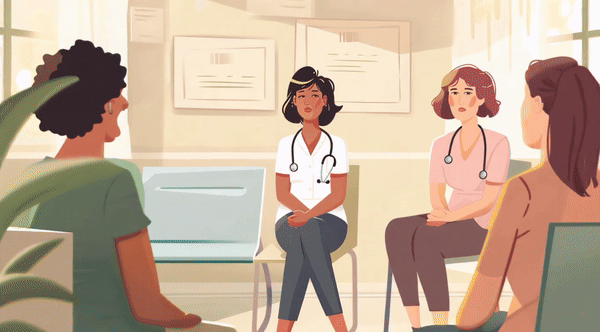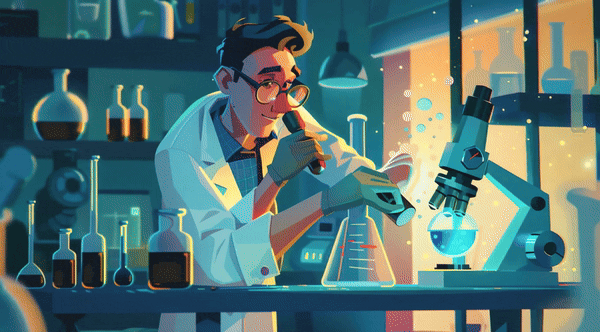Human growth hormone (HGH) is a naturally occurring hormone the pituitary gland produces. The organ’s primary function is attributed to growth, cell regeneration, and cell reproduction.
This organ plays a vital role in contributing to children’s overall growth and development. It is also important for keeping the skin young and healthy. But, with age, the production of this hormone is decreased significantly.
Synthetic human growth hormone (HGH) or HGH Therapy has witnessed a meteoric rise in its popularity to overcome issues, especially those that arise due to HGH deficiency or acromegaly.
What is HGH Deficiency or Acromegaly?
The primary function of the naturally occurring HGH hormone is directed toward cell regeneration. For instance, if someone undergoes an injury, the HGH hormone helps in speeding up the healing process.
Moreover, it also contributes to building muscle mass, boosting metabolism, and burning fat.
HGH, also known as somatotropin, acts as a medium for promoting growth in children. But once the growth plates in the bones, also called epiphyses, have fused, the HGH hormone no longer contributes to increasing height.
However, its role is not stopped because now it helps maintain normal body structure and metabolism. This also includes keeping blood sugar levels in control.
However, the human growth hormone (HGH) can sometimes be below average. This gives rise to growth hormone deficiency and affects children and adults differently. This condition can arise as a result of an injury or damage to the pituitary gland causing hypopituitarism.
Decreased HGH levels can cause increased body fat, risk of heart diseases, and weakened muscles and bones in the case of adults.
In the case of children, decreased levels of HGH can impact their growth. The primary sign of HGH deficiency in children is slow height growth. Other signs include impaired hair growth, younger-looking faces than expected for their age, and late puberty.
In children, hypopituitarism is usually detected from birth. The cause is often unknown, genetic, or injury in the pituitary gland during fetal development.
Human growth hormones also cause danger when their levels are high. This condition is known as acromegaly. Acromegaly in adults can cause health conditions like thickened bines, enlarged organs, high blood pressure, Type 2 diabetes, and heart disease.
Acromegaly, in the case of children, can result in excessive growth of long bones, very tall height, and delayed puberty. This condition in children is also known as gigantism or pediatric acromegaly.
What is HGH Therapy Used For?
HGH therapy is used to treat the following:
1. HGH Deficiency or Acromegaly
As mentioned above, HGH therapy is mostly prescribed to treat HGH deficiency and acromegaly in both adults and children.
Any of these conditions are detected by performing certain blood tests to check the HGH levels. Doctors also use other procedures, such as growth hormone stimulation and suppression tests, to diagnose the side effects of HGH deficiency or acromegaly.
2. Aesthetic or Athletic Purpose
Apart from this, HGH therapy is also taken up for athletic or aesthetic reasons. Results have shown that HGH therapy helps in improving athletic performance.
It helps in increasing the ability to exercise and lead an active lifestyle. The HGH therapy boosts muscle mass that starts deteriorating as a result of aging.
HGH therapy is also used for aesthetic purposes, that is, to fight the signs of aging. Human growth hormone (HGH) helps the person look young and fresh. However, this is not highly recommended by professionals because of the potential side effects it can cause.
3. HIV or AIDS
HGH therapy is also recommended to treat health conditions such as HIV or AIDs. HIV destroys the immune system and tissues of the patient. The HGH therapy helps the patient fight the negative symptoms associated with the infection.
Patients inflicted with HIV feel lethargic because of their weak immune systems and the medications prescribed for the infection. HGH therapy helps in boosting their energy at the cellular level in the form of ATP.
4. Prader-Willi Syndrome
HGH therapy is also recommended to treat Prader-Willi syndrome. A rare genetic disorder causes physical, mental, and behavioral problems. A common symptom of Prader-Willi Syndrome is a constant feeling of hunger.
Studies have shown that HGH therapy helps in improving cognitive performance in children with PWS. It also helps improve body composition, physical strength, and motor development in PWS patients.
5. Turner’s Syndrome
Women suffering from Turner’s syndrome are often recommended HGH therapy. Turner’s syndrome is a condition where the female is born with only one X chromosome. This can result in short stature, delayed puberty, learning disabilities, infertility, and heart defects.
HGH therapy is administered to ensure that the female is attaining the expected height as their peers. It is a daily injection that is administered right from the age of 5 or 6 years of age or later. It is often prescribed to continue the injections until age 15 or 16.
6. Short Bowel Syndrome
HGH therapy is also recommended to reduce the symptoms of short bowel syndrome. Short bowel syndrome is a condition where the body fails to absorb enough nutrients from foods because of a poor functional small intestine.
The main symptoms of short bowel syndrome are loose, watery stools, dehydration, malnutrition, and weight loss. HGH therapy helps in improving the intestinal function of the patient. It offers short-term benefits in the form of weight gain and intestinal absorption of nutrients.
How is HGH Therapy Administered?
The most common way HGH therapy is administered in children and adults is through injections. The dose is prescribed based on the severity of the condition. The manufactured or synthetic growth hormones are designed to mimic the behavior of natural growth hormones in the body.
These injections can be self-administered or given by a doctor. The treatment is often continued for a couple of years to derive the best and most long-lasting results.
The nature of the treatment is suggested based on age, overall health, medical history, the severity of the condition, and the expectation from the treatment.
Patients undergoing HGH therapy are kept under constant monitoring to assess the safety and effectiveness of the treatment.
Conclusion
While HGH therapy is beneficial in treating a number of health conditions, it is always important to ensure that the treatment is considered only after expert advice. Regular HGH treatment and expert monitoring can help patients suffering from HGH deficiency, acromegaly, and other health conditions mentioned in the article improve their condition and lifestyle.
This is a sponsored post
Digital Health Buzz!
Digital Health Buzz! aims to be the destination of choice when it comes to what’s happening in the digital health world. We are not about news and views, but informative articles and thoughts to apply in your business.


